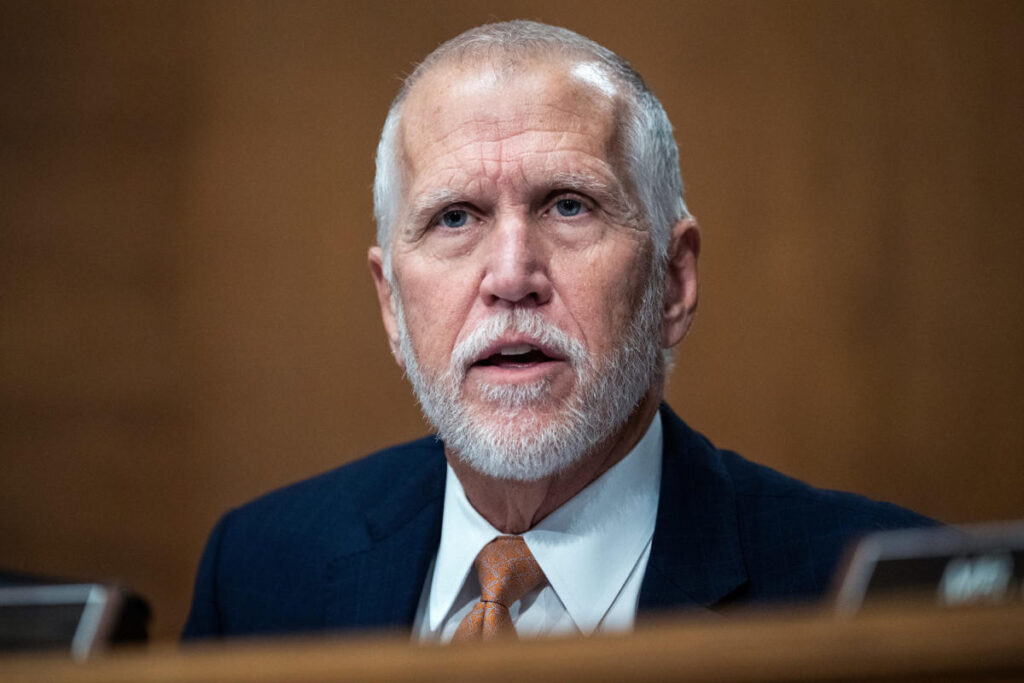Senator Thom Tillis from North Carolina recently criticized political groups and individuals who are threatening primary challenges against Republican senators who do not support President-elect Donald Trump’s cabinet nominees. In his appearance on ‘Fox News Sunday’, Tillis labeled these challengers as “political opportunists,” emphasizing that such actions are premature, given that the new administration has yet to take office and that confirmation processes are still unfolding. He noted that many of these activists appear to be more interested in promoting their own fundraising efforts rather than genuinely supporting Trump’s nominees. Tillis argued that party members should allow nominees to succeed or fail based on their merits rather than succumbing to external pressures from activist groups.
Elon Musk, a prominent tech billionaire and ally of Trump, has been vocal about his support for challenging Republican senators who do not align with Trump’s views on cabinet appointments. Musk has previously committed over $250 million to support Trump’s reelection efforts. His comments sparked discussions among conservatives about the need to hold GOP senators accountable for their votes on Trump’s picks, including figures like Tulsi Gabbard and Robert F. Kennedy Jr. As some senators expressed skepticism toward certain nominations, Musk’s influence in shaping intra-party dynamics through his financial backing raised concerns among established Republican leadership about maintaining party unity.
Musk’s recent remarks suggested that the absence of alignment with Trump’s nominees would make senators susceptible to primary challenges. His collaboration with Turning Point USA’s Charlie Kirk highlights a growing trend where grassroots activists are pushing for accountability within the Republican Party, targeting senators they perceive as straying from Trump’s agenda. This environment of heightened tension is exacerbated by public pressure from party activists, who have called out senators like Mike Rounds and Joni Ernst for their hesitations regarding specific nominees, creating a more combative political landscape.
Adding to this, the conservative group Heritage Action announced a significant digital campaign aimed at influencing undecided GOP senators across several states with a budget of $150,000. This initiative aligns with the narrative that Republicans must adhere to Trump’s agenda to avoid electoral repercussions. Heritage Action’s leadership stressed the importance of moving quickly on confirming cabinet appointees to fulfill the conservative mandate received during the recent elections. The group’s efforts exemplify how funding and grassroots mobilization are converging to challenge perceived deviations from party orthodoxy.
Amid these pressures, Tillis defended senators who are taking a more deliberative approach in evaluating Trump’s nominees, suggesting that it is appropriate for them to consider qualifications and past experiences. He specifically noted the importance of thorough vetting processes, even for controversial figures such as Kash Patel, asserting that the Senate’s role involves a careful assessment of each nominee’s suitability for their proposed positions. His comments highlight a broader concern among some Republicans regarding the balance between party loyalty and the need for informed decision-making on critical appointments.
In light of these developments, key figures within the Republican Party, including Senator Lindsey Graham, have emphasized the need for individual senators to remain steadfast amidst external pressures to conform to party expectations. The ongoing discourse reflects the challenges the GOP faces as it grapples with its identity and direction in the post-Trump era. Tillis’ remarks serve as a call for measured consideration rather than rash reactions and suggest a potential rift within the party that could shape its future trajectory. The dynamic interplay between established Republican values, populist pressures from grassroots movements, and the overarching influence of Trump and his allies will likely define the immediate political landscape as the new administration takes shape.

